- About
About
Read about our values and the heart of Altitude in our About Altitude page or why not learn more about us in our team page? Our Verbier page has everything you need to know about the resort and what to do nearby.- Camps
Our Camps
We offer residential camps for 7-14 year olds as well as day camps for 3-14 year olds. For families, we offer accommodation options as well as bespoke family holiday itineraries.- Residential Camps
- Day Camps
- Activities & Excursions
- Family Adventures
- Accommodation
Accommodation
Our camps foster a home away from home feeling for children with everything they need for a safe and comfortable stay. For families, we have suitable properties for all requirements.How to make friends at summer camp
Camp is the best place to make new friends! Year after year, children make new friends at summer camp, and there are many returning campers who like to book into the same camp session together each year. Camp can be an exciting, fun holiday away from your parents, which you get to enjoy with your new friends.How do I start making new friends?
There are many different ways for you to make friends at summer camp. The first one is to introduce yourself – your new best friend could be sitting next to you already! You won’t be the only one whose first day it is at camp, there will always be another camper in the same position as you, why not introduce yourself while you’re waiting for everyone else to arrive, and team up with them! I know it can be scary to introduce yourself to someone but you can do it!How will camp staff help me to make friends at camp?
Your camp counsellors or team leaders will organise games and activities for you to get to know each other and make new friends straight away. Your very first day activities will be playing team building and ‘get to know you’ games or, another term for them which you may hear is ice breakers, this will be common for most camps! The staff here are helping you settle in to camp and are encouraging you to get to know them, and each other too. We add in extra challenges to help you remember your camp mates and new friend’s names! You may play these with your new bunk mates for residential camp, or in your activity groups for day camps.
What if I don’t have friends to go to activities with at first?
Camps like Altitude have set programmes, so everyone is doing the activities together in their group, and you don’t need to worry about this! Some camps you will get a free choice of activities, and maybe you don’t know anyone who is going to the same one as you from your cabin! Don’t worry, as soon as you get to an activity, the staff will make sure you’re involved in whatever they’re doing that day. Activities at camp usually involve working or playing as a team, so by joining in with activities you will make friends. At Altitude, you will be in a group of other campers of similar age with your own camp leader and tend to stay with this group at camp. For example, if you go to an activity like shelter building, you’ll soon find that you need to rely on your fellow campers to complete the activity. It’s way more fun to do these activities in a team!
What if I can’t remember everyone’s names?
Camps come in different shapes and sizes, so for really big camps, you might not know everyone’s names, and that’s OK! You don’t need to worry about not knowing everyone, because you will know the others in your dorm or bunk room, and you will know campers who are doing the same activities as you, or those you meet during mealtimes! For small camps like Altitude, you will usually end up knowing everyone’s name especially if you’re a residential camper, as everyone does activities together in the evenings. If you’ve forgotten someones name, just ask them, and they won’t mind telling you again!What if I speak a different language?
Don’t worry, at international camps or language camps, this the case for lots of campers. When campers come from all different countries, it has the added advantage that you can make friends with other children from all over the world! But if there are children from all over the world, what if they don’t speak the same language as me? Well, it’s hard to have a conversation with someone if you’re all speaking different languages! Many camps will take this into consideration when they are designing their groups/programmes. For example, at out camp we have children who speak a whole range of languages but we encourage all children to speak English together so that no one feels left out. If you don’t speak English and want to go to a camp in a different language you may find one near your home, or if there is a language that you’ve always wanted to learn, you can see if there is a camp which has lessons in your chosen language. There are also lots of camps who offer language programmes, if there is a language that you want to learn you may be able to do this at summer camp!
How can I help my child to prepare to make friends at camp?
Encouragement is key! Put yourself in your child’s shoes; going to a new camp, especially for the first time, can be really scary. However, once they’ve gone for the first day and made new friends to enjoy activities with, they’re going to feel more independent, and be so proud of themselves! Talk to your child, find out how their feeling about it. Words of encouragement and helping them get over any pre camp nerves will definitely help prepare them and make them feel more confident. Come to our summer camp and you’ll have made new friends before you know it! You may be wondering whether to send your child to camp, and whether summer camp is right for your child. We believe camp is beneficial to every child and answer a few questions about our own camp including who goes to summer camp, what age children start, and where they come from in the world.What age do children go to camp?
The age that children can go to summer camp will vary from camp to camp, and this also will be defined by the activities the camp offer. At Altitude, we have 3 different camps which children can join. This allows us to open the camp to a large variety of children of different ages, and we accept children from 3 – 14 years old. Many camps will accept children at school age, so from around 5 or 6 up to 18 years old.Can my pre-schooler join summer camp?
Yes! We welcome children from as young as 3 years old to our half-day mountain adventure style programme. This is an age specific programme which we call the ‘Marmot Camp’ for children between the ages of 3-5 years old. This is a morning-only camp, where the children come ready to leave for an activity at 9am. We will then all go in our van to an activity whether that’s pond dipping, swimming, camp fire building, mountain art, shelter building, the list is endless! After our activity we will come back to camp and re join the other campers for lunch, after lunch it’s home time at 1pm.
What ages do children join day and residential summer camp?
Once your child is 6 years old, they can join full day camp which run from 9am – 4pm, and when they’re 7 years old they can become a residential or ‘overnight’ camper. Both these camps are open to children right up to the age of 14 years old. We will still split up the camp into different age categories for activities, as we understand a 6 year old and a 14 year old are very different so will then handle the activities in different ways. Day camp schedule consists of a morning activity, lunch and then an afternoon activity before home time at 4pm, and residential campers get to enjoy an evening programme as well as the adventure of staying away from home with their new camp friends and staff.Are all the children at camp from Switzerland, or do children come from elsewhere?
At our summer camps we welcome children from all over the world. We have children from Switzerland who may be local or from Expat families, as well as children from countries such as Hong Kong, Russia, Great Britain, The Netherlands, Italy, Canada and France just to name a few! Even though the children’s native languages all differ, we ask that all children attending our camp speak English so that no one feels left out. There are summer camps all over the world, with different target audiences, and some may be international camps such as our own, whereas others may be more local. Many camps in America and Canada tend to mainly have campers from the major cities around them, and may be based on a school campus or have pick up points in local cities. This will then attract local children as it is seen as a camp which has easy access for children to get to. If the camp is linked to a school and they market themselves within the school, there is likely to then be a large number of campers attending the camp who also go to the school. If you find a camp which you like the look of and it seems to follow this set up, it may still be worth looking into. They may also have a programme to welcome international children.
Is summer camp right for my child?
We think so! Summer camp can bring great benefits to any child, and there are so many different camps out there we are confident you’ll find one to suit you. There are different types of camp, as well as different programmes on offer; for example if your child doesn’t like the idea of staying away from home yet, opt for a day camp programme! Across the board, you can easily find many camps which have based their activities round core subjects like athletic camps, adventure camps, art camps including music, water sports or academic programmes. Most camps won’t require your child to have any knowledge or experience in the activities that they’re going to participate in. For example, at our mountain adventure camp we find that allot of our kids haven’t tried a high ropes course before they come to tackle it with us. However, you will find that your camp mates and staff will always be there to help and encourage your child and you will find that they come away having learnt so much! Whilst your children are developing new skills and enjoying outdoor activities at an Altitude summer camp, there is no reason why you shouldn’t also be able to make the most of your time in Verbier in luxury summer chalets. If you’re looking for a property to base yourself at, then look no further than luxury chalet specialists, Leo Trippi, who have an extensive collection of summer chalets in Verbier with fantastic facilities for the whole family. Take a look at their top 5 summer chalet recommendations in Verbier below.Chalet Calima
 Close to Sonalon in the heights of Verbier, Chalet Calima is a beautiful four-bedroom property with magnificent mountain views, open plan living and incredible wellness facilities.
Astounding views can be enjoyed from the indoor pool which is equipped with a moveable floor to adjust the depth – ideal for children or nervous swimmers.
Floor-to-ceiling windows slide open onto a south-facing sunny terrace with outdoor hot tub – the perfect spot to unwind.
Close to Sonalon in the heights of Verbier, Chalet Calima is a beautiful four-bedroom property with magnificent mountain views, open plan living and incredible wellness facilities.
Astounding views can be enjoyed from the indoor pool which is equipped with a moveable floor to adjust the depth – ideal for children or nervous swimmers.
Floor-to-ceiling windows slide open onto a south-facing sunny terrace with outdoor hot tub – the perfect spot to unwind.
Chalet Les Étrennes
 In a private location just a short drive from Savoleyres and the resort centre, Chalet Les Etrennes provides a peaceful setting for a summer holiday.
With six en-suite bedrooms and four floors of luxury living, there is plenty of room to spread out, relax and enjoy the incredible panoramic views.
From the light and spacious living room on the top floor to an outdoor hot tub in the garden, this family-friendly chalet is a true home away from home.
In a private location just a short drive from Savoleyres and the resort centre, Chalet Les Etrennes provides a peaceful setting for a summer holiday.
With six en-suite bedrooms and four floors of luxury living, there is plenty of room to spread out, relax and enjoy the incredible panoramic views.
From the light and spacious living room on the top floor to an outdoor hot tub in the garden, this family-friendly chalet is a true home away from home.
Chalet Nyumba
 Perched above the village in the Sonalon area of Verbier, Chalet Nyumba offers commanding views across the valley, alpine-themed decor and facilities to keep the whole family entertained.
The children will be happy with a playroom equipped with countless toys and games as well as a cinema room with an extensive DVD library.
Parents can relax in the lavish spa which includes an ‘L’ shaped swimming pool with adjustable depth and counter current, outdoor hot tub, plunge pool, hammam and sauna. Adjoining the chalet is a self-contained guest mazot – ideal for any staff.
Perched above the village in the Sonalon area of Verbier, Chalet Nyumba offers commanding views across the valley, alpine-themed decor and facilities to keep the whole family entertained.
The children will be happy with a playroom equipped with countless toys and games as well as a cinema room with an extensive DVD library.
Parents can relax in the lavish spa which includes an ‘L’ shaped swimming pool with adjustable depth and counter current, outdoor hot tub, plunge pool, hammam and sauna. Adjoining the chalet is a self-contained guest mazot – ideal for any staff.
Chalet Milou
 Located on Chemin de Clambin, Chalet Milou has a traditional rustic feel yet has been updated to include many contemporary comforts.
With far-reaching views across the valley, several lounges to relax and socialise together in and an outdoor hot tub, this six-bedroom chalet has everything you need to enjoy a summer holiday in the Swiss Alps.
Located on Chemin de Clambin, Chalet Milou has a traditional rustic feel yet has been updated to include many contemporary comforts.
With far-reaching views across the valley, several lounges to relax and socialise together in and an outdoor hot tub, this six-bedroom chalet has everything you need to enjoy a summer holiday in the Swiss Alps.
Chalet Toundra
 Situated on the south-facing side of Verbier close to Savoleyres, Chalet Toundra is a superb property sleeping up to 10 guests.
Combining fantastic views with an alpine-inspired interior, the chalet has a laid-back feel with a wrap-around balcony for soaking up the sun.
The children’s bunk room is a total delight and there are a further three tastefully-appointed double bedrooms to choose from.
To enquire about renting a luxury chalet in Verbier this summer ask the Altitude Team when booking your camp, or contact sales@leotrippi.com or visit www.leotrippi.com for further inspiration.
Across the world there are countless numbers of summer camps, these come in various shapes and sizes, such as sports or language camps, and from camps with 50 campers to 500 campers! You could be looking for a camp local to you or an international camp, or you may need a camp which caters to your child’s specific needs. There are many things to consider when choosing a summer camp!
Choosing the right summer camp can end up being an overwhelming experience! To help, we have chosen what we believe are 10 important questions to ask yourself when you are choosing a summer camp for your child.
Situated on the south-facing side of Verbier close to Savoleyres, Chalet Toundra is a superb property sleeping up to 10 guests.
Combining fantastic views with an alpine-inspired interior, the chalet has a laid-back feel with a wrap-around balcony for soaking up the sun.
The children’s bunk room is a total delight and there are a further three tastefully-appointed double bedrooms to choose from.
To enquire about renting a luxury chalet in Verbier this summer ask the Altitude Team when booking your camp, or contact sales@leotrippi.com or visit www.leotrippi.com for further inspiration.
Across the world there are countless numbers of summer camps, these come in various shapes and sizes, such as sports or language camps, and from camps with 50 campers to 500 campers! You could be looking for a camp local to you or an international camp, or you may need a camp which caters to your child’s specific needs. There are many things to consider when choosing a summer camp!
Choosing the right summer camp can end up being an overwhelming experience! To help, we have chosen what we believe are 10 important questions to ask yourself when you are choosing a summer camp for your child.
1. How big is the camp?
Just like adults, children will respond differently in different environments. It is important to consider the size of the camp when choosing a camp for your child. Do you think they will enjoy themselves more if they are in a smaller camp, where they will be able to receive more 1 on 1 attention and get to know everyone easily? Or do they feel confident around people whether they know them or not, and therefore would be happier in a larger camp where they can meet lots of new people at each activity?2. How many returning campers are there ?
This is usually an indicator of whether campers enjoy camp. If there is a high number of campers going back each year, then naturally you can tell they are doing something right! The campers also get to know each other really well during their time at camp so it can be nice for children to have friends who they can come back to camp with year after year, especially if you’re looking for camp to become a part of your child’s summers for years to come. However, if it’s your child’s first time at camp, you may also want the reassurance that other children are going for the first time too, so that it wont be too ‘cliquey’, so a balance is usually best!3. Where is the summer camp based?
The location of the camp will greatly influence the atmosphere surrounding the camp, for example, is the camp based in a school or park? Based in a school may make it feel more like ‘summer school’ to some children, or if the base is in a rural location such as the mountains or by a lake this may feel more adventurous. In this scenario a question to ask yourself would be, will my child spend the whole time in the park or school, or will they venture outside of this? Take a look at the camp programme and where activities take place to help answer this!4. What is the camper to staff ratio like?
In a similar way to asking about the size of the camp, it’s important to ask what their staff to camper ratios are like. If you think your child will need extra attention for specific needs, then it is important to make this is known to the staff on booking. On average most camps should have a ratio of roughly 8-10 campers to 1 member of staff for children 6 years and over. Below this age it should be closer to 4-6 children to 1 member of staff.5. Will my child be allowed to take their phone or ipad with them?
The majority of summer camps will discourage children from taking their smartphones or ipads. We have found that children will focus more on the activity that they are doing if they don’t have access to their phones. This will also help encourage children to become friends with one another, and have fun without relying on technology or worrying about their phones. Children will find once they are at camp, that even if they had their phones, they wouldn’t have time to use them! This doesn’t mean that you won’t be able to contact your child whilst they are at camp, they may have options to write you a letter or if they can take phones, use their phones or a camp phone at free time to contact you. Not having access to their phones at all times also means children are less likely to feel home sick.6. Who can I contact at camp for information on my child?
It’s good to check your options for contacting staff while your child is at camp. The camp director will most likely always be on hand if you need them. All camps will have an emergency contact number and most likely, the director or a manager will be on the other end of the line to help you. You may also want to ask who the person responsible for your child’s welfare is whilst they are at camp, so you know who to talk to for an update, or if you have any worries or concerns. Make it known to your child that they can always talk to camp staff about anything they need help with, a big part of going to camp is independence and learning to deal with day to day issues by themselves, of course with the help of staff when they need it.7. Are there transportation options for my child to come to camp or do I need to take them?
This will vary between camps. If the camp is local to you and most campers are coming from a similar catchment area, there may be a camp bus going from certain locations to take the children to the summer camp. If it’s a day camp, this may be an option each day. There is also almost always an option to drop off your children directly at the camp. For international camps, usually the camps can arrange to pick the camper up from the airport and then take them to the camp; children often fly as unaccompanied minors with airlines and are collected from the airline by camp staff directly. They may fly alone if they are old enough (usually 12 years +), or with a parent or guardian. It is important to think about how your child would react and if they would be comfortable travelling alone by plane and bus to camp. If your child in nervous, it might be easier for them if you travel with them.8. What is a typical day at camp like?
Again, varies for every camp, whether it’s a day or residential camp, and then if you’ve chosen an academic camp, an adventure camp, a sports camp or something else! Most camps follow a general structure where campers do a morning activity, group back together for lunch and then go off for their afternoon activity. This may be a set programme, or campers may have a choice of different activities they can do. If they are at day camp the children would most likely then go home at around 4pm or 5pm, if they are residential the kids would then follow their evening programme.9. Do the children get free time at camp?
Free time can be when some of the best memories are made, hanging out with your new friends at camp, playing, chatting and having the time to rest, imagine and relax. Ask yourself what your child’s normal routine is like, are they a ‘go go go’ kid, or do they need to take things a bit slower and rely on some quiet time each day to relax and reflect on their day? Depending on the answer you may wish to look at what facilities children have at camp for use in free time, or if you can sign them up to extra activities. If you feel like time to relax will be an important aspect to their day then you might want to leave these activities out, so they have some time to themselves or with new friends.10. What group will my child be in?
Children will mostly always be grouped together by their age. Younger ones will tend to learn different skills at a slower pace to older children, therefore it is more enjoyable for everyone if they are split this way. This also goes for children’s interests and personalities. There are hundreds of questions which I’m sure will cross your mind when choosing a summer camp. We get this! We always make sure we answer any queries and concerns prospective parents may have, no matter how many this may be. We always recommend to research your chosen camp so you know what to expect. Ask your child if they have questions too, as ultimately they will be the campers! Head to our residential camps or day camps pages to find out more about the camps we offer in Verbier, of if you have any questions about choosing a summer camp feel free to contact us.Join us for an adventure of a lifetime
or call(+41) 7953 052 24
to speak with one of our teamAltitude Camps
Altitude Camps SARL
Case Postale 55
Verbier, 1936
Switzerland© 2024 Altitude CampsNewsletter - Day Camps
- Camps

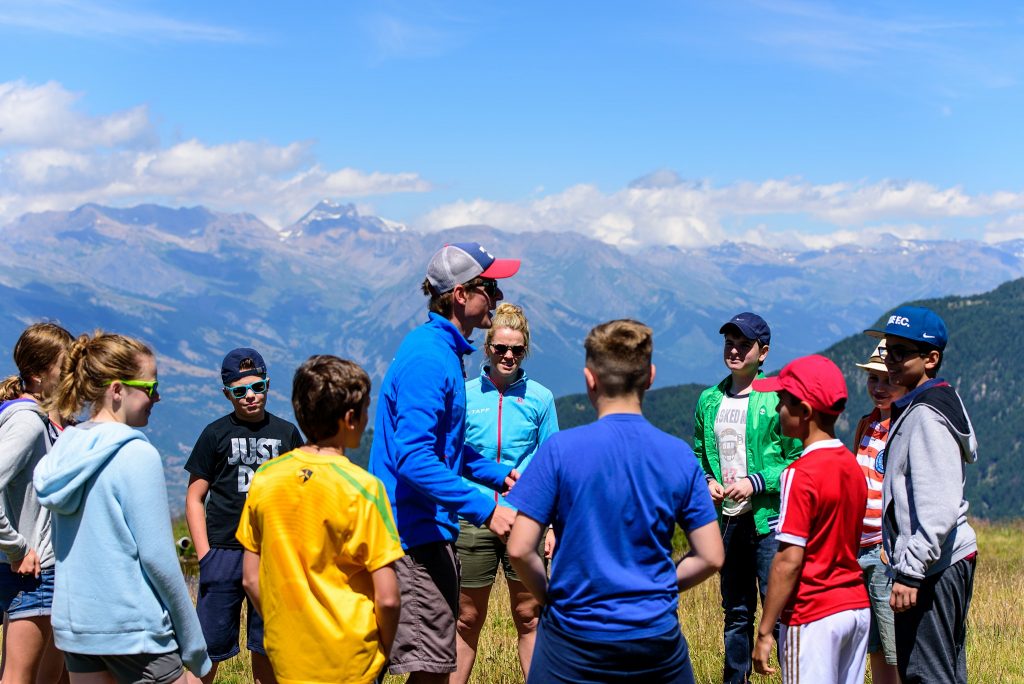
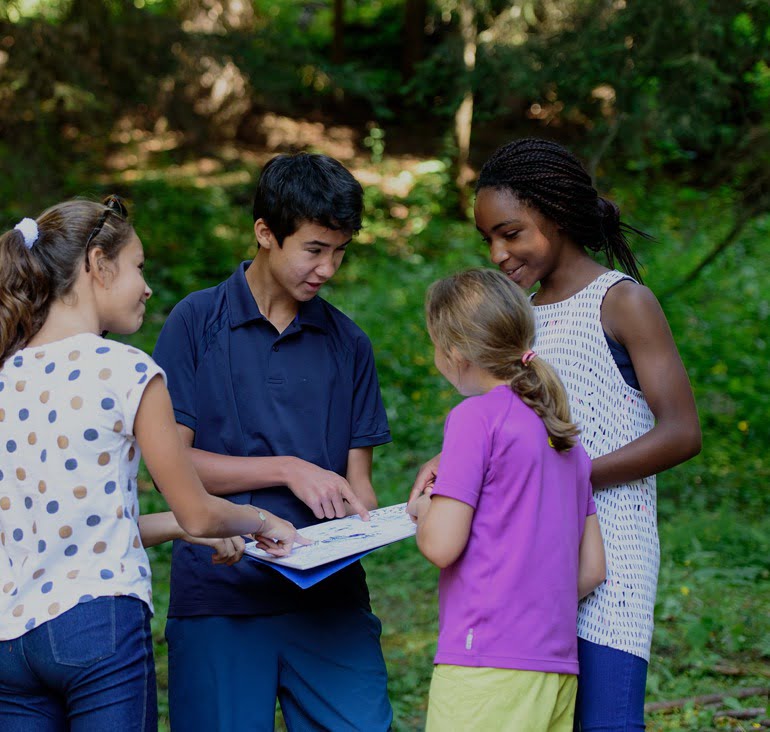
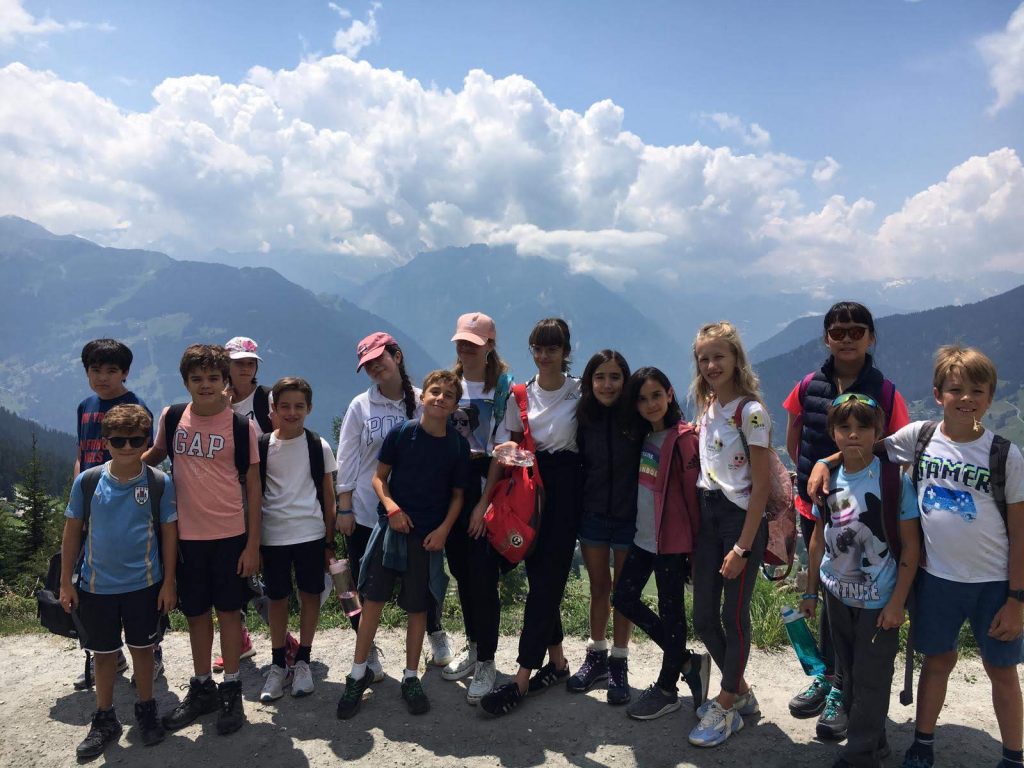
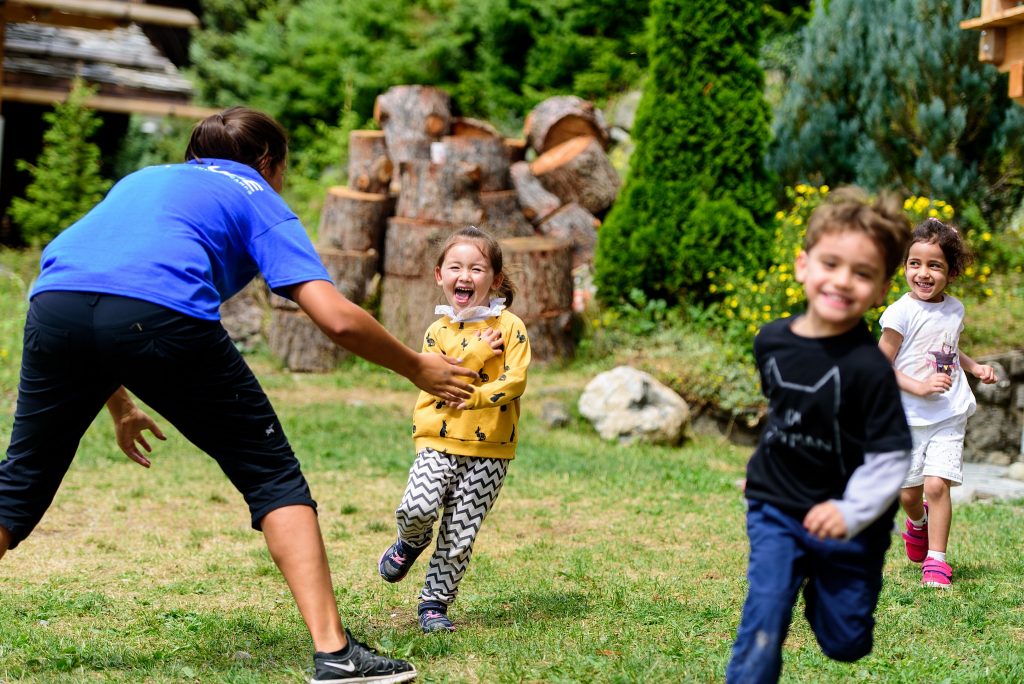
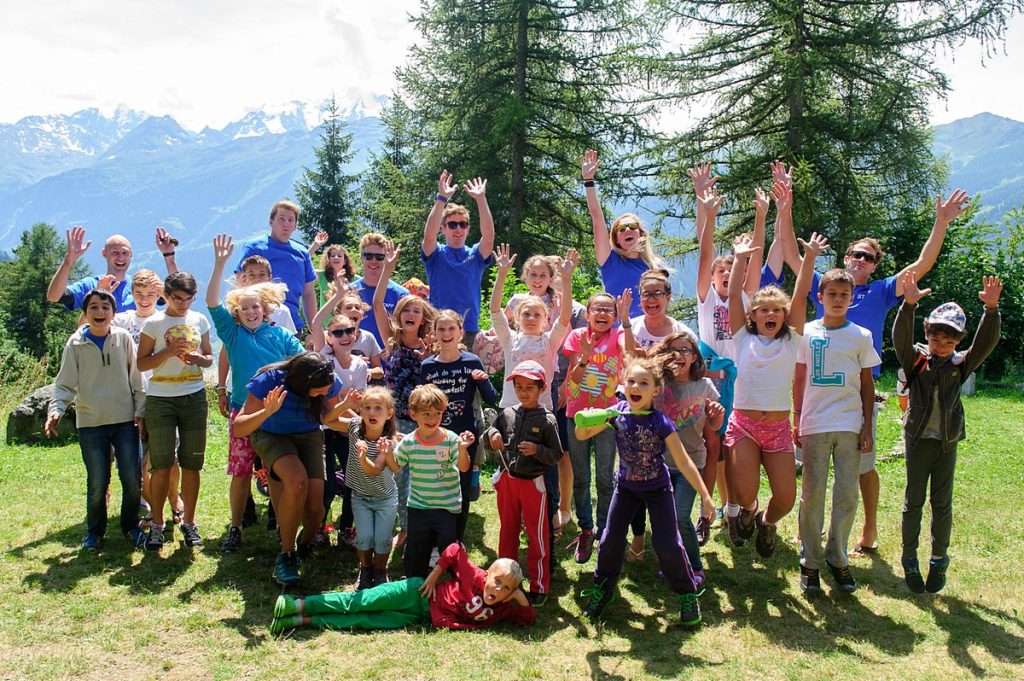
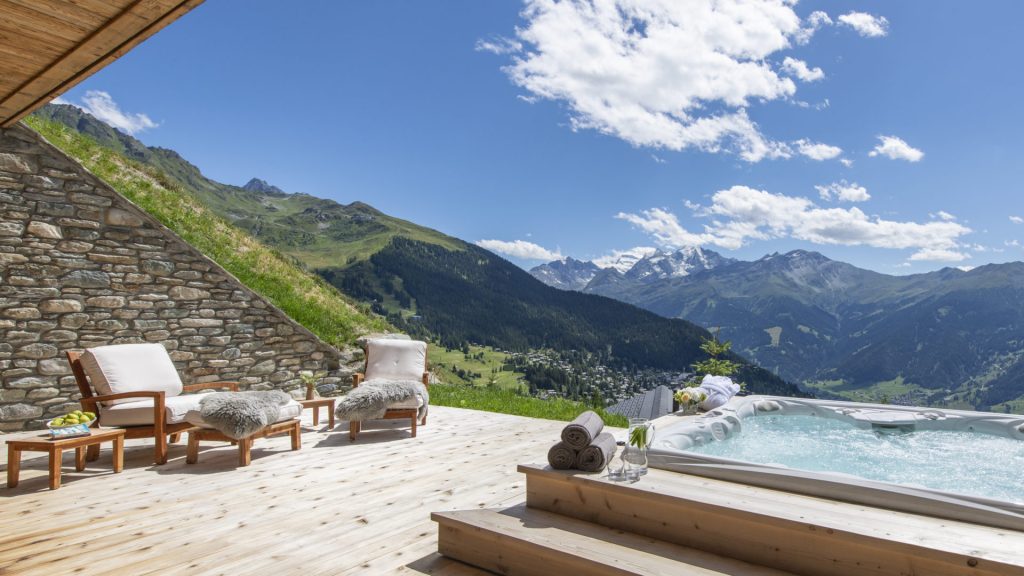 Close to Sonalon in the heights of Verbier, Chalet Calima is a beautiful four-bedroom property with magnificent mountain views, open plan living and incredible wellness facilities.
Astounding views can be enjoyed from the indoor pool which is equipped with a moveable floor to adjust the depth – ideal for children or nervous swimmers.
Floor-to-ceiling windows slide open onto a south-facing sunny terrace with outdoor hot tub – the perfect spot to unwind.
Close to Sonalon in the heights of Verbier, Chalet Calima is a beautiful four-bedroom property with magnificent mountain views, open plan living and incredible wellness facilities.
Astounding views can be enjoyed from the indoor pool which is equipped with a moveable floor to adjust the depth – ideal for children or nervous swimmers.
Floor-to-ceiling windows slide open onto a south-facing sunny terrace with outdoor hot tub – the perfect spot to unwind.
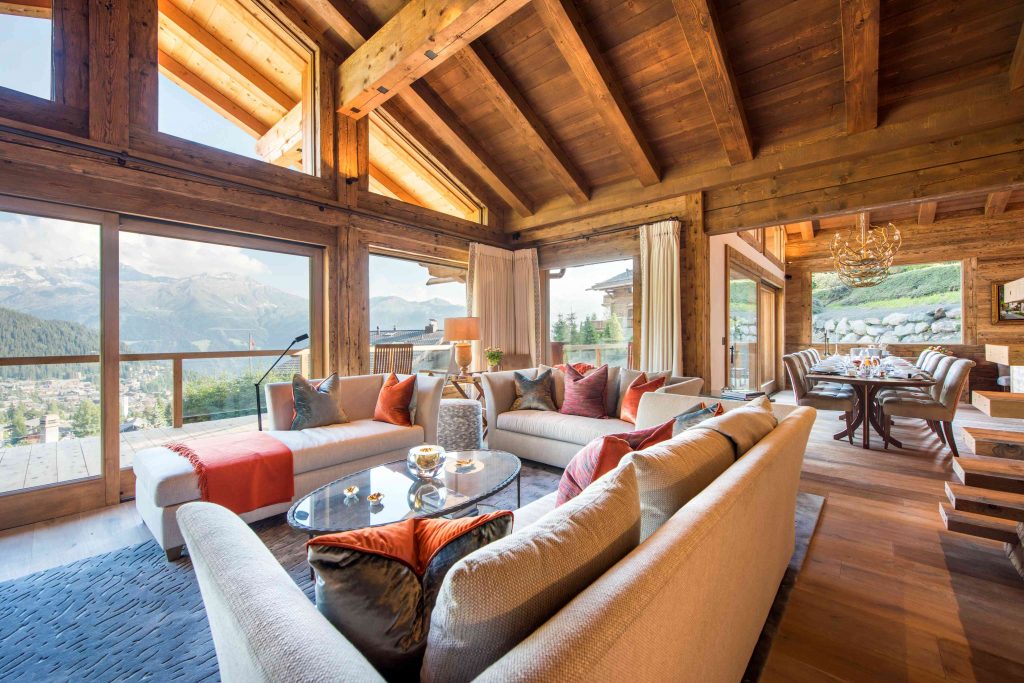 In a private location just a short drive from Savoleyres and the resort centre, Chalet Les Etrennes provides a peaceful setting for a summer holiday.
With six en-suite bedrooms and four floors of luxury living, there is plenty of room to spread out, relax and enjoy the incredible panoramic views.
From the light and spacious living room on the top floor to an outdoor hot tub in the garden, this family-friendly chalet is a true home away from home.
In a private location just a short drive from Savoleyres and the resort centre, Chalet Les Etrennes provides a peaceful setting for a summer holiday.
With six en-suite bedrooms and four floors of luxury living, there is plenty of room to spread out, relax and enjoy the incredible panoramic views.
From the light and spacious living room on the top floor to an outdoor hot tub in the garden, this family-friendly chalet is a true home away from home.
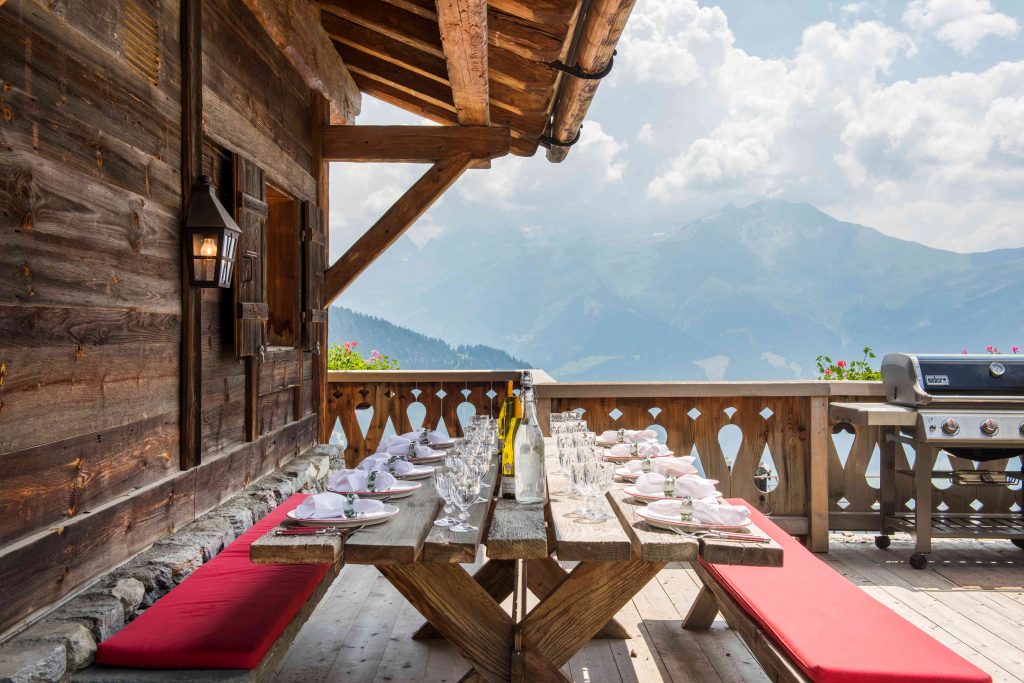 Perched above the village in the Sonalon area of Verbier, Chalet Nyumba offers commanding views across the valley, alpine-themed decor and facilities to keep the whole family entertained.
The children will be happy with a playroom equipped with countless toys and games as well as a cinema room with an extensive DVD library.
Parents can relax in the lavish spa which includes an ‘L’ shaped swimming pool with adjustable depth and counter current, outdoor hot tub, plunge pool, hammam and sauna. Adjoining the chalet is a self-contained guest mazot – ideal for any staff.
Perched above the village in the Sonalon area of Verbier, Chalet Nyumba offers commanding views across the valley, alpine-themed decor and facilities to keep the whole family entertained.
The children will be happy with a playroom equipped with countless toys and games as well as a cinema room with an extensive DVD library.
Parents can relax in the lavish spa which includes an ‘L’ shaped swimming pool with adjustable depth and counter current, outdoor hot tub, plunge pool, hammam and sauna. Adjoining the chalet is a self-contained guest mazot – ideal for any staff.
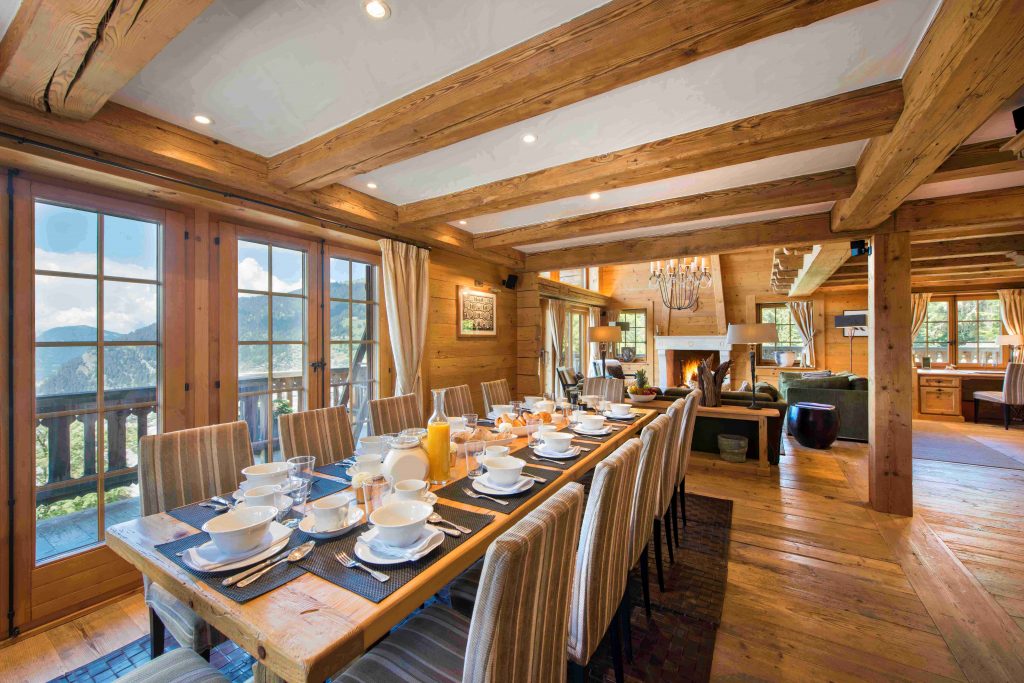 Located on Chemin de Clambin, Chalet Milou has a traditional rustic feel yet has been updated to include many contemporary comforts.
With far-reaching views across the valley, several lounges to relax and socialise together in and an outdoor hot tub, this six-bedroom chalet has everything you need to enjoy a summer holiday in the Swiss Alps.
Located on Chemin de Clambin, Chalet Milou has a traditional rustic feel yet has been updated to include many contemporary comforts.
With far-reaching views across the valley, several lounges to relax and socialise together in and an outdoor hot tub, this six-bedroom chalet has everything you need to enjoy a summer holiday in the Swiss Alps.
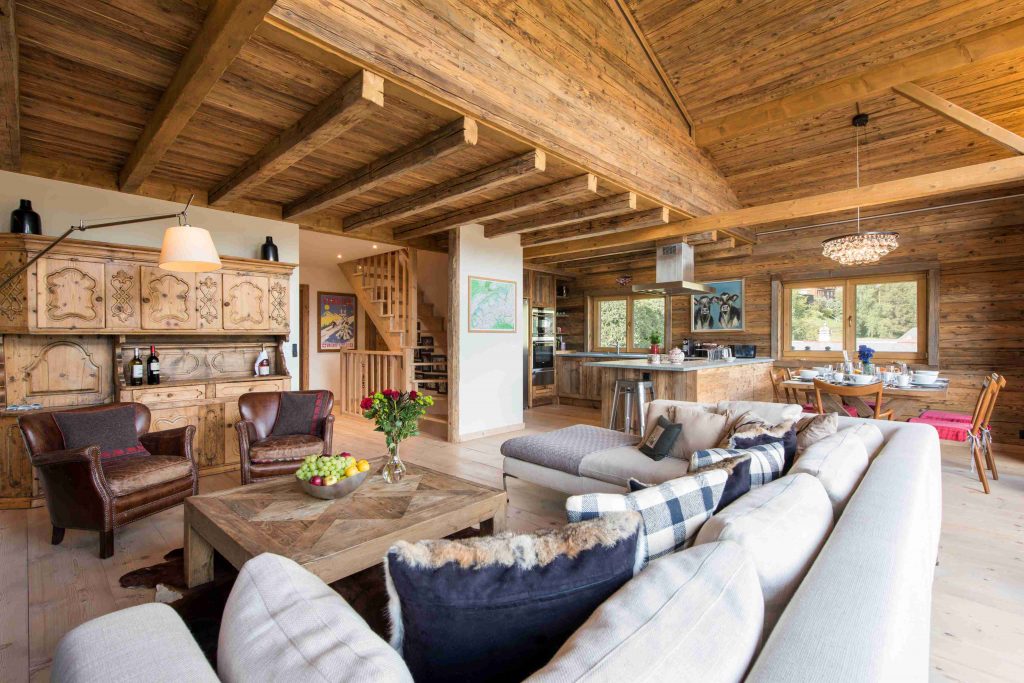 Situated on the south-facing side of Verbier close to Savoleyres, Chalet Toundra is a superb property sleeping up to 10 guests.
Combining fantastic views with an alpine-inspired interior, the chalet has a laid-back feel with a wrap-around balcony for soaking up the sun.
The children’s bunk room is a total delight and there are a further three tastefully-appointed double bedrooms to choose from.
To enquire about renting a luxury chalet in Verbier this summer ask the Altitude Team when booking your camp, or contact
Situated on the south-facing side of Verbier close to Savoleyres, Chalet Toundra is a superb property sleeping up to 10 guests.
Combining fantastic views with an alpine-inspired interior, the chalet has a laid-back feel with a wrap-around balcony for soaking up the sun.
The children’s bunk room is a total delight and there are a further three tastefully-appointed double bedrooms to choose from.
To enquire about renting a luxury chalet in Verbier this summer ask the Altitude Team when booking your camp, or contact